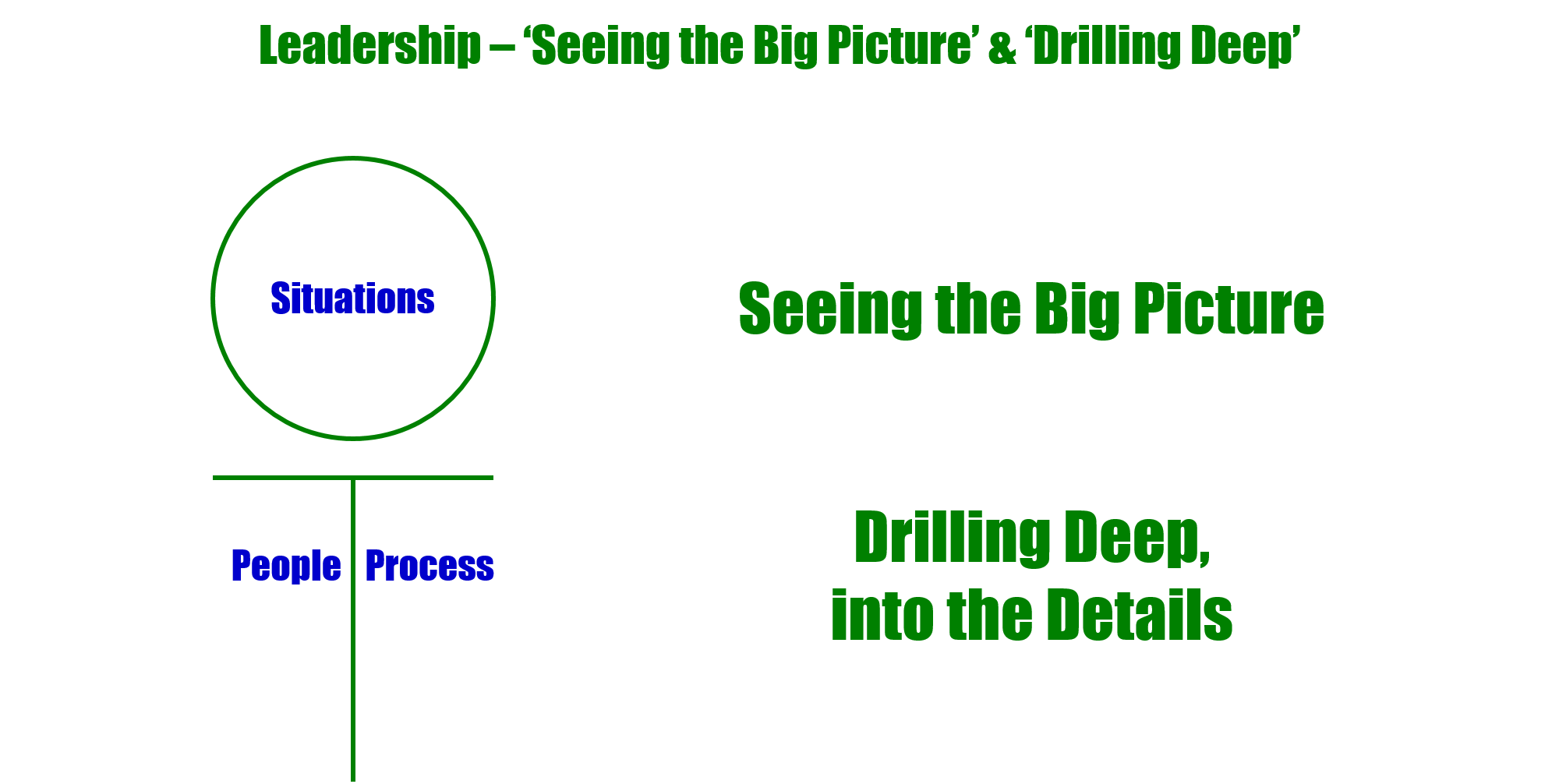Strategic Thinking & Attention to Details: for a business leader, what's the right balance between these two things?
Some business leaders think they can soar around at 50,000 feet, never having to touch the ground let alone drill down into details. Sooner or later they learn, it can be a very quick trip from 50,000 feet to crash and burn.
Some business leaders think their attention to detail is so excellent they feel they must share the details with their followers repeatedly, every day...for almost every task. Sooner or later, they choke the spirit out of their followers, business engines stall, and another business death spiral begins.
Some business leaders operate between the two extremes, without giving any of this much thought.
***
Q: For business leaders, what is the right balance between strategic thinking and attention to detail?
A: The right balance needs to be customized to fit each leader's natural talents and the strengths the leader has developed through years of practice. It is important to plan the best balance rather than take an unplanned approach, allowing actions to unfold as they will during the heat of the business battles. One way a leader can determine his or her best balance is to approach the topic from a perspective laced with Seek Simple philosophies, one of which is - Business Contains Only 3 Things: People, Processes, and Situations.
As you plan your approach to balancing Strategic Thinking versus Attention to Details, make sure you cover the People side first. Then, when you know the People side is covered, move on to the Process side. Why? People are very inclined to over-trump Processes....one way or another.
Consider your talents and strengths: I mean, seek professional help to make sure you have an accurate understanding of your talents [as Gallup tells us - talents are our natural ways of thinking and behaving] and your strengths [things you can do with mastery]. Again, cover the People side first, then move on to the Process side.
Know yourself, especially know how to put your relationships to best use and know your strengths [or lack of strengths] in the area of influencing your followers.
Envision how you will balance your strategic-thinking work with your attention to detail work...then go do it...and excel!
***
